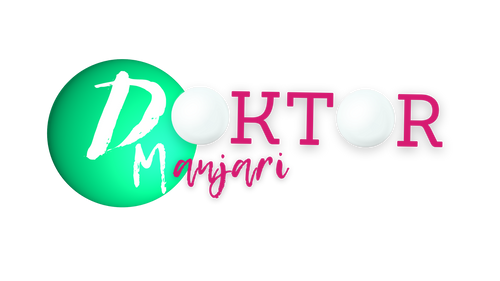
A New Beginning: Embracing the New Year with Self-Help and Self-Improvemen
As the calendar turns to a fresh year, many people find themselves reflecting on the past and thinking about what lies ahead. The New Year is often seen as a time for renewal—a chance to reset, set goals, and commit to becoming better versions of ourselves. Whether it’s making a personal transformation, improving relationships, or achieving professional milestones, the potential for growth is abundant in the year ahead. Here’s how to embrace the New Year with a focus on self-help and self-improvement.
1. Setting Clear, Achievable Goals
One of the most common New Year’s traditions is the making of resolutions. However, it’s easy to set vague intentions like “get fit” or “be happier,” which are often too broad to be effective. Instead, focus on setting clear, actionable goals that are specific, measurable, and time-bound (SMART goals).
For example:
Instead of "get fit," aim for "exercise for 30 minutes, 4 times a week."
Instead of "be happier," aim for "practice gratitude by writing down three things I’m grateful for every day."
By making goals concrete, you give yourself a better chance of success and provide a way to track your progress over time.
2. Embrace the Power of Routine
Habits are the foundation of self-improvement. The small actions you take each day compound over time, leading to significant changes. A New Year presents an opportunity to cultivate positive habits and leave behind those that no longer serve you.
Some areas to focus on:
Morning rituals: A positive start to the day can set the tone for everything that follows. Consider starting your day with activities like meditation, journaling, reading, or physical exercise.
Evening routines: Ending the day with intention can improve your sleep and help you wind down. Try reflecting on what you accomplished or planning for the next day before bed.
Creating consistency is key. Over time, these small routines will become automatic, and you’ll notice significant improvements in your productivity, energy, and mindset.
3. Prioritize Self-Care and Mental Health
In the hustle of everyday life, it’s easy to overlook our mental and physical well-being. But self-care isn’t just a buzzword—it’s essential for long-term happiness and success. This year, take time to nurture both your body and mind.
Physical health: Prioritize exercise, nutritious food, and sufficient sleep. Find an activity you enjoy, whether it’s yoga, hiking, dancing, or weight training.
Mental health: Engage in practices that reduce stress, such as mindfulness, journaling, or talking with a therapist. Making your mental health a priority can help you manage challenges and cultivate resilience.
Remember, self-care isn’t selfish—it’s necessary for maintaining the energy and mental clarity to pursue your goals.
4. Learn and Grow Through Education
Self-improvement often involves expanding your knowledge and skill set. The New Year offers an opportunity to commit to learning something new, whether it’s a hobby, a new language, or a professional development course.
Reading: A great way to invest in yourself is through books. Aim to read a variety of genres, from personal development to fiction, which can stimulate both the mind and creativity.
Courses: Consider enrolling in online classes or workshops to improve your professional skills, develop a new hobby, or deepen your understanding of a subject that excites you.
The process of learning is empowering and can help you grow both personally and professionally.
5. Cultivate Positive Relationships
Self-improvement isn’t just about individual growth—it’s also about the connections we foster with others. Surround yourself with people who inspire, challenge, and support you. Healthy relationships are vital for emotional well-being and can offer perspective and motivation when you face obstacles.
Quality over quantity: Invest your time in relationships that are meaningful and nurturing.
Communication: Practice active listening and engage in open, honest conversations with loved ones.
Boundaries: Set healthy boundaries that protect your emotional space while maintaining respect for others.
Building a network of positive, supportive people can serve as both a mirror and a safety net, encouraging you to reach your potential.
6. Practice Gratitude
The practice of gratitude has been shown to have numerous psychological benefits, including improved mood, greater life satisfaction, and increased optimism. Taking time each day to acknowledge and appreciate the positive aspects of your life can shift your mindset and help you maintain a balanced perspective, even when challenges arise.
Gratitude journaling: Set aside a few minutes each day to write down things you are thankful for. These can be big or small, from a beautiful sunrise to a successful work project.
Gratitude letters: Another powerful way to express appreciation is by writing letters to those who have made a positive impact on your life, whether they are close friends or mentors.
Practicing gratitude on a daily basis helps build resilience and encourages a shift from focusing on what’s lacking to appreciating what’s abundant in your life.
7. Embrace Failures as Learning Opportunities
It's important to recognize that growth doesn’t come without setbacks. The path to self-improvement is often marked by failures, but these are not roadblocks—they’re steppingstones. Reframe failure as a chance to learn and refine your approach. Each challenge provides valuable lessons that contribute to your ultimate success.
Adopting a growth mindset—a belief that abilities and intelligence can be developed through hard work and dedication—can help you navigate setbacks with grace and perseverance.
8. Stay Consistent, Not Perfect
Consistency is more important than perfection when it comes to self-improvement. The goal is to make incremental progress each day, rather than trying to achieve an idealized version of yourself overnight. Small, consistent actions add up over time, and even on days when things don’t go as planned, you can get back on track without self-criticism.
Allow room for imperfection, and practice self-compassion. Your journey toward self-improvement is ongoing, and every step counts.
Conclusion: A Fresh Start Awaits
The New Year represents a fresh start, a time to commit to personal growth and improvement. Whether you’re looking to set clear goals, embrace healthier habits, invest in relationships, or prioritize mental well-being, this is the moment to take action. Remember, self-improvement is a lifelong process, and each small step you take this year will build momentum for a better, more fulfilled future.
Here’s to the new beginnings that await in the year ahead full of growth, transformation, and endless possibilities.
